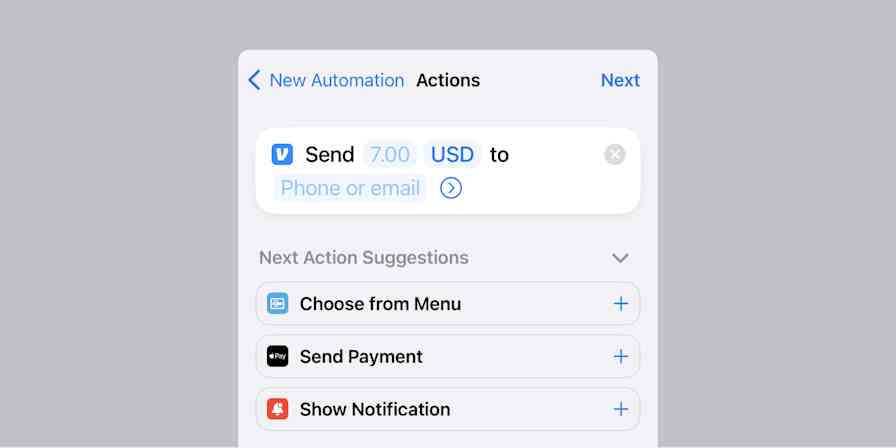Important people are busy, so anyone who's very busy must be very important, right?
Not necessarily. Our core focus should be on doing the most important work, then spending plenty of time resting away from work so we're ready to be creative again tomorrow. Rushing between tasks seldom accomplishes either of those goals.
It's tricky to stop busyness encroaching on your time—especially when others request your time commitment. Let's look at a few ways you can protect your time from the demands and busywork, and free up your schedule for the most important things.
Create More 1:Many Situations
It's a law of nature: the further you rise, the more people will make demands on your time.
Dorie Clark, marketing strategist
If meetings, calls, and coffee meetups take up significant chunks of your calendar, make these events more efficient. That can help you cut down the impact on your work while still finding time to help others.
Find ways to turn these 1:1 situations into 1:many situations. For instance, if you tend to have lots of coffee meetings, you could do what entrepreneur Sol Orwell does and set up a standing invitation every week or month. Invite anyone who wants to have coffee with you to show up and join the group. If only one person comes, you haven't lost anything, but you've taken control and made the meeting at a time that suits you. And if more people come, they'll all get more out of the experience by meeting each other as well as you, and your time will be well spent by helping many people at once.
Another example comes from marketing strategist Dorie Clark, who suggests setting up a dinner party for several people who want to spend time with you rather than meeting them all one on one. You can introduce these people to each other and spend time with them all at once, making your investment more efficient.
If you struggle more with the time it takes to reply to emails or answer phone calls, you can create 1:many situations in the way you answer these questions or offer advice. Rather than responding to a single person's question or request for advice, try writing a blog post or recording a video that you can share with your entire audience. Many others may have the same question, and it won't take up your time if you've already answered the question publicly.
Choose Something to Be Bad At
It's pretty common knowledge that we have limited time, energy, and attention. We know we can't be good at everything we do, nor can we do everything we want to.
We have only two options: We can try to be good at everything and end up being bad (or, at least, not-so-good) at everything, or we can try to be good at only some things and sacrifice others.
Clark suggests choosing something to sacrifice in order to spend more time and attention on things you care about. For her, the sacrifice is email response times. Clark replies to almost every email she gets, but it tends to take a long time. This means she can focus more time and energy on the most meaningful work, something that's made it worth the trade-off.
If email response times aren't something you're willing (or able) to sacrifice, you might instead decide to be bad at scheduling meetings. Author Cal Newport tends to be very deliberate in the way he schedules his calendar, which makes pinning down a meeting with him somewhat tricky. But for Newport, having meaningful work the first priority in his calendar is more important than being good at scheduling meetings with other people.
It's up to you what your trade-off is, but you're not going to be good at everything all the time. So you might as well choose something unimportant to sacrifice so you can be better at what matters. You don't have to be terrible at the things you choose to spend less time on—just don't aim for perfection on those. You'll be happier when you learn to settle for "good enough," at least for the unimportant choices and decisions.
Plan and Automate Focused Work Periods
Don't settle for a workday in which only an hour or two is in your control. Fight for every last minute.
Cal Newport
For those times when you find emails, calls, meeting requests, and other distractions pull you away from your most meaningful work, you may need to automate the process of getting down to work and keeping distractions at bay.
One way is with RescueTime's FocusTime feature, which lets you start a session of focused work and block distracting websites to keep yourself on track. With RescueTime's Zapier integration, you can automate your FocusTime sessions, so you can do more meaningful work without relying on willpower to avoid distractions.
You could automatically have a FocusTime session start when you begin your workday, or perhaps whenever you start a Pomodoro timer.
To let your team know you're busy, you can also automatically post a message to Slack or HipChat that tells your colleagues you're focusing and don't want to be disturbed.
Set Slack status when your RescueTime focus session starts
Update your Slack status after a RescueTime FocusTime session
Whether you automate your focused work periods or not, scheduling them ahead of time can help you avoid letting your calendar be overtaken by busywork and other people's demands. Newport suggests scheduling what he calls "deep work" sessions far in advance to ensure they're your first priority. Then, Newport says, protect those appointments as you would any other calendar event, try your best not to move or change them, and schedule busy work and meetings around those appointments.
"The best knowledge workers view their time like the best investors view their capital, as a resource to wield for maximum returns," writes Newport.
By scheduling time for focused work, you'll remind yourself that meaningful work is your first priority. You'll know ahead of time that you'll have at least those scheduled periods for focused work, rather than trying to squeeze your most important work around other commitments.
Rethink the Tools and Services You Use
Another suggestion from Cal Newport is to rethink the tools and services you use throughout the day. We too often think a service or tool that offers any benefit is a necessary part of our toolkit—when, in fact, we may be work better if we choose only those that serve our values in the best way.
There are two parts to this approach. The first is your values. Think about what's important to you. What values do you hold, and what do you want to achieve in life and work?
Once you have those values in mind, evaluate each tool or service in terms of whether it help you live out those values or not. If you use Twitter, for instance, ask yourself if it's helping to serve any of the values on your list. Ask the same of your business's Facebook page, email, Slack, and your favorite to-do list app.
To get the most out of your time and to avoid spending time on busy work or distractions, only keep using the tools and services that help you live out your values.
The second part of this approach is to find the tools and services that serve your values in the best way. It might be easy to say, for instance, that Twitter helps you stay up to date and knowing what's happening in the world is one of your values, but just because something is somewhat related to your values doesn't mean it's the best way to live out those same values. If you value staying current, for instance, your local newspaper (or its website) may be a better service to use than Twitter.
For each tool and service you use, ask yourself first if it serves any of your values, and second, whether it's the best way to serve those values.
For more suggestions on how to pick software, check Zapier's guide to 4 Ways to Make the Best Decision When Choosing an App.
It's common to see busyness as an indicator of importance and status—but it's actually a burden, something that will keep you from doing meaningful work.
So protect your time. It is, after all, our most valuable resource.
This was a guest post from RescueTime. Want to see your work on the Zapier Blog? Please see our guidelines and get in touch with us!.
Title photo by NasimAhmed96$





